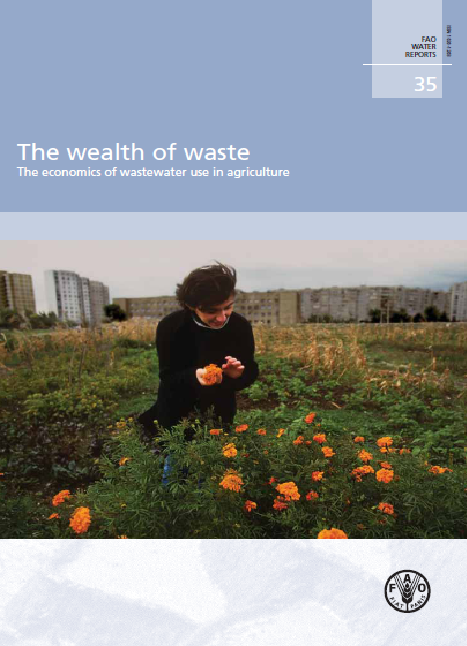The wealth of waste - The economics of wastewater use in agriculture
Winpenny, J., Heinz, I., Koo-Oshima,S., Salgot, M., Collado, J., Hernandez, F., Torricelli, R. (2010)

Published in: 2010
Publisher:
FAO
Author:
Winpenny, J., Heinz, I., Koo-Oshima,S., Salgot, M., Collado, J., Hernandez, F., Torricelli, R.
Uploaded by:
SuSanA secretariat
Partner profile:
common upload
4469 Views
4 Downloads
Content - Summary
The use of reclaimed water in agriculture is an option that is increasingly being investigated and taken up in regions with water scarcity, growing urban populations and growing demand for irrigation water. This report presents an economic framework for the assessment of the use of reclaimed water in agriculture, as part of a comprehensive planning process in water resource allocation strategies to provide for a more economically efficient and sustainable water utilization. Many regions of the world are experiencing growing water stress. This arises from a relentless growth of demand for water in the face of static, or diminishing, supply and periodic droughts due to climatic factors. Water stress is also caused by pollution from increasing amounts of wastewater from expanding cities, much of it only partially treated, and from the contamination of aquifers from various sources. Such water pollution makes scarcity worse by reducing the amount of freshwater that is safe to use. Water scarcity in all its aspects has serious economic, social and even political costs.
Bibliographic information
Winpenny, J., Heinz, I., Koo-Oshima,S., Salgot, M., Collado, J., Hernandez, F., Torricelli, R. (2010). The wealth of waste - The economics of wastewater use in agriculture. FAO
Filter tags
English Greywater or wastewater Water (irrigation, process, other)















